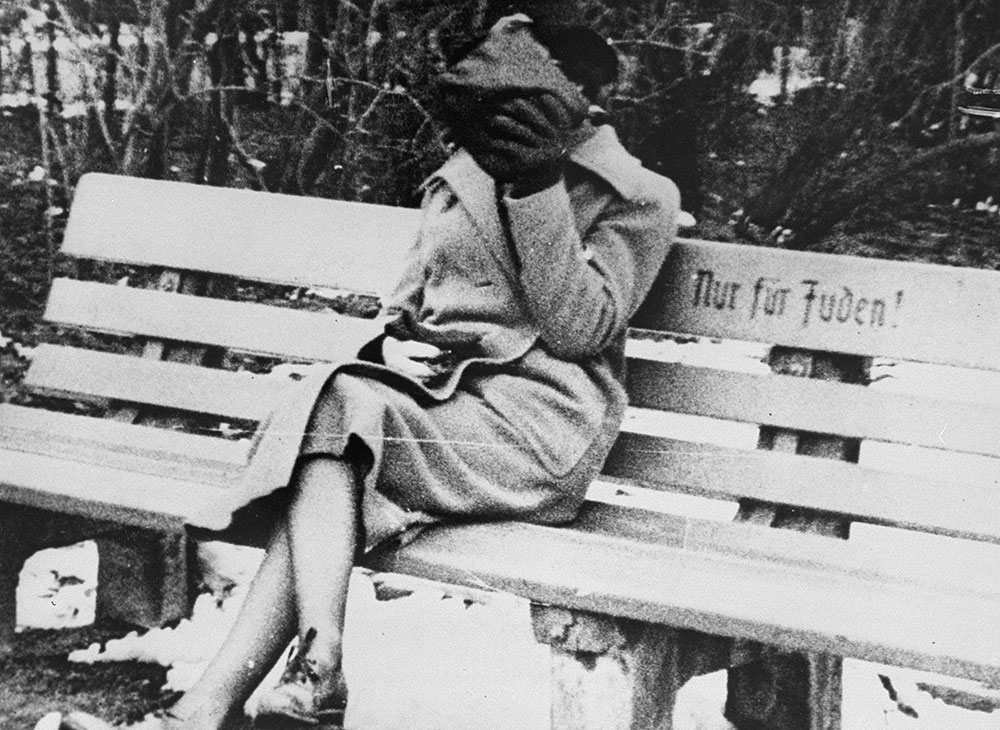Voices on Antisemitism features a broad range of perspectives about antisemitism and hatred. This podcast featured dozens of guests over its ten-year run.
Blog Home > academic perspectives
-
Alan Kraut
January 7, 2016
Alan Kraut is University Professor of History at American University. He is a specialist in U.S. immigration and ethnic history, and the author of Silent Travellers: Germs, Genes, and the "Immigrant Menace." Kraut offers some context for the politics of fear and xenophobia that often accompany immigration debates.
-
Despina Stratigakos
November 5, 2015
Despina Stratigakos is an architectural historian at the University at Buffalo. Her recent book Hitler at Home examines the efforts of Hitler's interior designer Gerdy Troost to cultivate Hitler's image as both a refined statesman and a man of the people.
-
Erica Lehrer
October 1, 2015
Erica Lehrer founded the Centre for Ethnographic Research and Exhibition in the Aftermath of Violence at Concordia University. In 2013, she curated “Souvenir, Talisman, Toy,” an exhibition of Polish-made figurines depicting Jews. And she is the author of Jewish Poland Revisited: Heritage Tourism in Unquiet Places.
-
Maud Mandel
March 5, 2015
Maud Mandel is a professor of history and Judaic studies, as well as the Dean of the College at Brown University. She wrote a book called Muslims and Jews in France: History of a Conflict, and here she offers some context for the January 2015 shootings in Paris, at the offices of the satirical magazine Charlie Hebdo and at a kosher supermarket.
-
David Nirenberg
August 7, 2014
David Nirenberg is a professor of history at the University of Chicago. His book Anti-Judaism: The Western Tradition examines the durability and usage of anti-Jewish sentiments throughout history.
-
Pinar Dost-Niyego
October 3, 2013
Turkish scholar Pinar Dost-Niyego faces some hurdles when teaching the Holocaust in Istanbul—including Turkey's own history of antisemitism and anti-minority laws. But Dost-Niyego sees change in her students as they begin to connect with the personal stories of Holocaust victims.
-
Diana Dumitru
September 5, 2013
Diana Dumitru found an incredible example of how antisemitism can be dismantled: two territories in Eastern Europe, separated only by a river, shared a legacy of pogroms and violence against Jews. But after WWI, one territory continued a policy of state-sponsored antisemitism, while the other began a policy of integration and acceptance.
-
Aomar Boum
July 8, 2013
Aomar Boum returned to his native Morocco to study the trend of rising antisemitism there. He conducted interviews with four generations of Muslim Moroccans about their feelings toward Jews. What he found is a noticeable shift toward less interaction and greater hostility.
-
Alex Haslam
May 2, 2013
Since the Holocaust, social psychologists have asked: Why do people succumb to evil? Theories point to peer pressure and the power of conformity. But Alex Haslam and Steve Reicher reject the idea that people become automatons in a group. Their mock-prison study reveals something more complex about the ways individuals sign on to a brutal agenda.
-
Kathleen Blee
January 3, 2013
Prof. Kathleen Blee has written several books about racism and the Ku Klux Klan. Blee looks in particular at ways the KKK was able to infiltrate mainstream America in the 1920s, by focusing its membership efforts on moderates, not extremists—a strategy repeated by the Nazis shortly thereafter.

